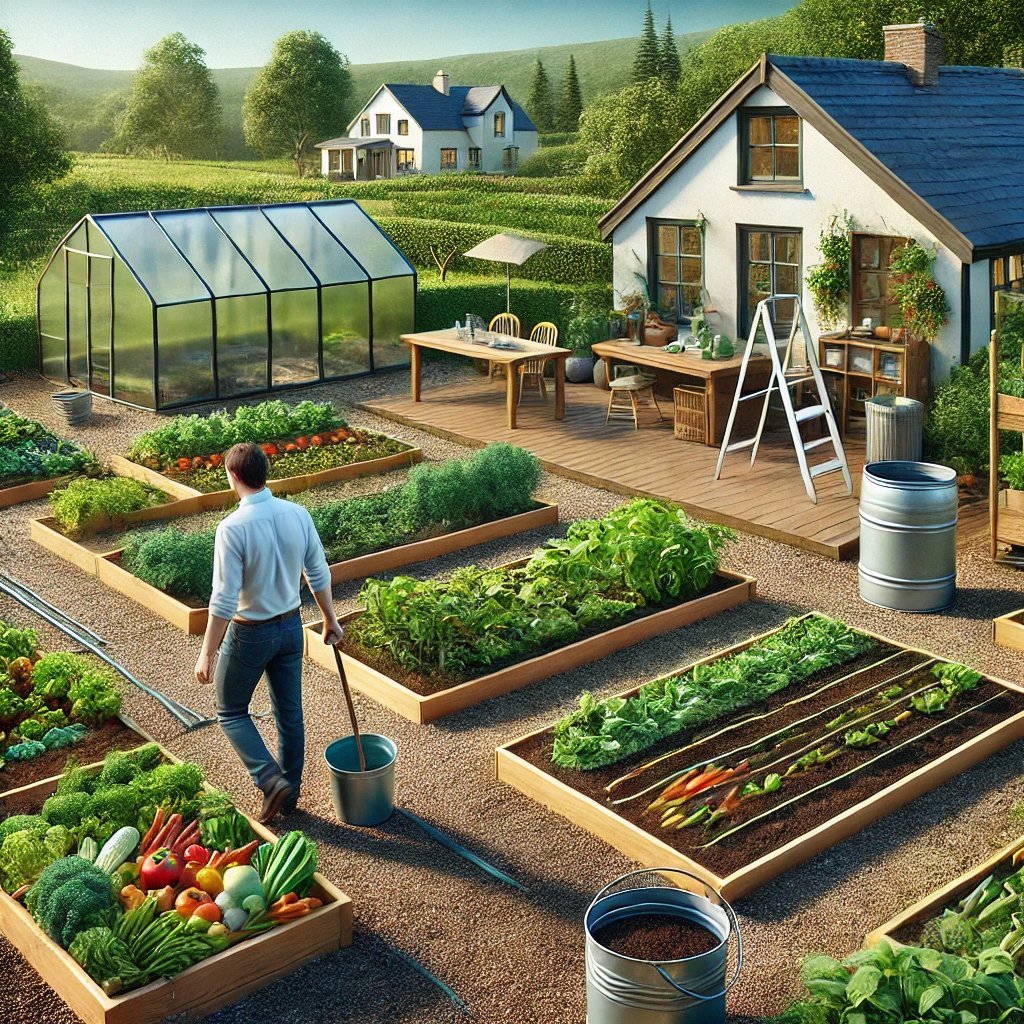Address
304 North Cardinal
St. Dorchester Center, MA 02124
Work Hours
Monday to Friday: 7AM - 7PM
Weekend: 10AM - 5PM
Address
304 North Cardinal
St. Dorchester Center, MA 02124
Work Hours
Monday to Friday: 7AM - 7PM
Weekend: 10AM - 5PM

Growing your own food is one of the most rewarding ways to achieve self-sufficiency. By cultivating a garden, you can reduce your reliance on store-bought food, save money, and enjoy fresh, organic produce. Here’s a guide on how to get started with growing your own food for a more self-sufficient lifestyle.
Before you start planting, it’s important to plan your garden. Consider the following factors:
Good soil is the foundation of a healthy garden. Prepare your soil by removing weeds and rocks, loosening compacted areas, and adding organic matter. You can improve soil quality by adding compost, well-rotted manure, or organic fertilizers. Consider testing the pH of your soil and adjusting it to suit the types of plants you plan to grow.
For some plants, it’s better to start seeds indoors before transplanting them outside. This helps give them a head start in the growing season. Use seed trays or biodegradable pots to start seeds indoors. Once the seedlings are large enough and the outdoor conditions are favorable, harden them off by gradually acclimating them to outdoor conditions before transplanting them into the garden.
Companion planting involves growing certain plants together that benefit one another. Some plants help repel pests, while others improve soil health or enhance the growth of nearby plants. For example, planting basil near tomatoes can improve tomato flavor and help deter pests like mosquitoes and aphids. Research companion planting combinations to maximize your garden’s productivity.
Watering is one of the most important aspects of growing food. Water your plants early in the morning or late in the evening to minimize evaporation. Use drip irrigation or soaker hoses to target the roots directly and conserve water. Mulching around your plants can also help retain moisture and reduce the need for frequent watering.
Weeds compete with your plants for nutrients, water, and sunlight, so it’s important to keep them under control. Here are some natural methods for weed control:
Harvesting your crops at the right time ensures they are at their peak flavor and nutritional value. Pay attention to the signs that your crops are ready for harvest. For example, tomatoes should be fully red, and beans should be firm and dry. Harvest early in the day to avoid the heat, and be gentle with your crops to prevent bruising.
Once you’ve harvested your crops, it’s important to preserve them for long-term storage. You can preserve food by:
Maintaining healthy soil is key to a productive garden. Rotate crops each year to prevent soil depletion, and use organic methods to build soil fertility. Add compost, mulch, and organic fertilizers to maintain healthy soil. Avoid using chemical pesticides and herbicides, as they can harm beneficial insects and microorganisms in the soil.
As you continue to grow your own food, think about long-term sustainability. Plan your garden so that you have a steady supply of food throughout the year. Learn about seasonal planting and harvesting, and experiment with growing a variety of crops to ensure that you have enough food for yourself and your family.
Growing your own food takes time, patience, and effort, but the rewards are well worth it. By planning your garden, choosing the right crops, and using sustainable methods, you can achieve self-sufficiency and enjoy fresh, homegrown food year-round. Start small and expand your garden as you gain experience, and soon you’ll be living a more sustainable, off-grid lifestyle.